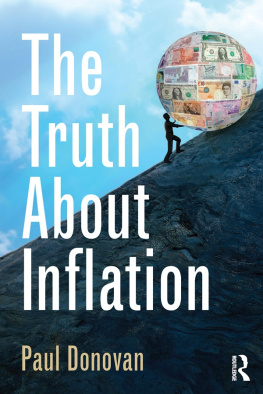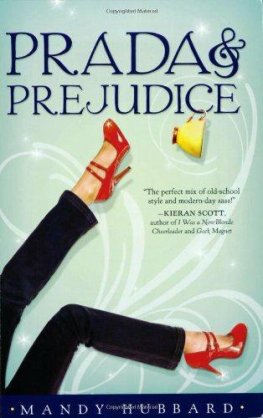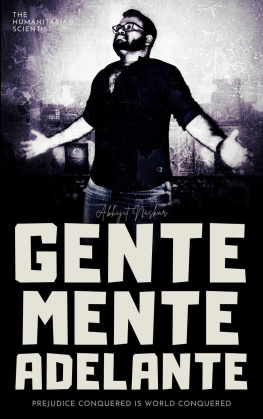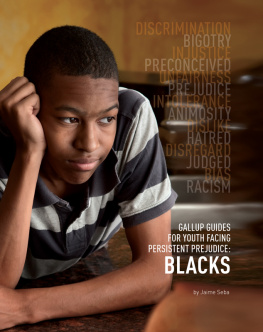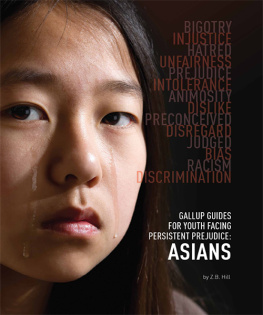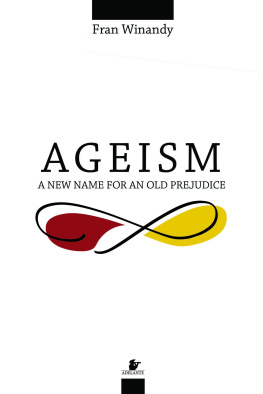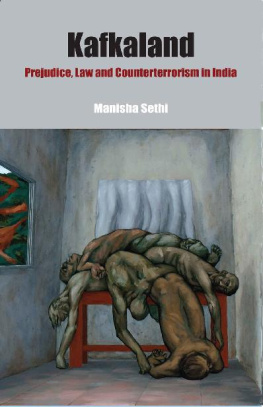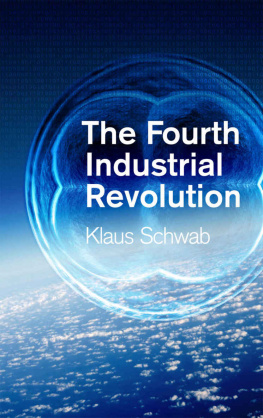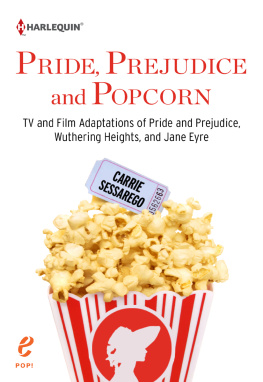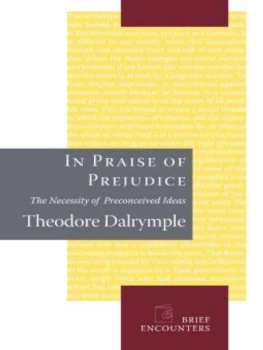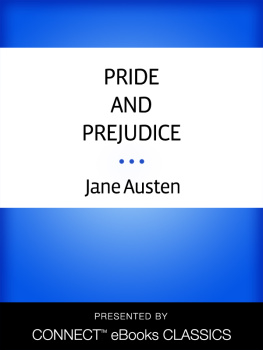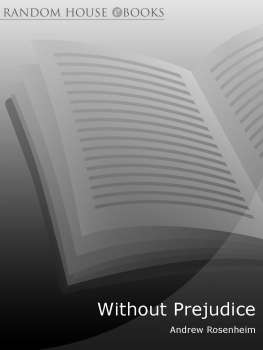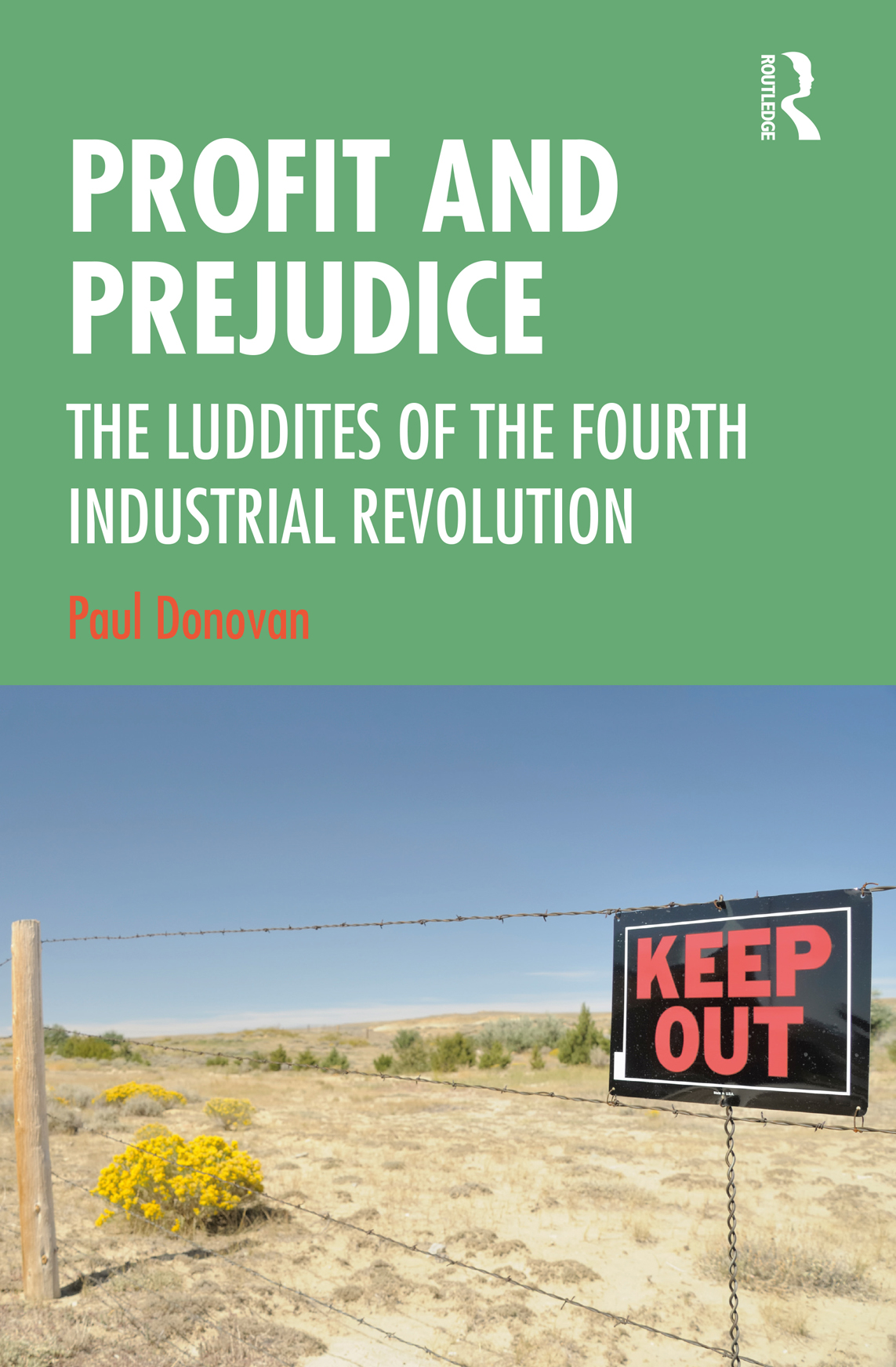
Profit and Prejudice
Avoiding prejudice will be critical to economic success in the fourth industrial revolution. It is not the new and innovative technology that will matter in the next decade, but what we do with it. Using technology properly, with diverse decision making, is the difference between success and failure in a changing world. This will require putting the right person in the right job at the right time. Prejudice stops that happening.
Profit and Prejudice takes us through the relationship between economic success and prejudice in labour markets. It starts with the major changes that occur in periods of economic upheaval. These changes tend to be unpopular and complex and complexity encourages people to turn to the simplistic arguments of scapegoat economics and prejudice. Some of the changes of the fourth industrial revolution will help fight prejudice, but some will make it far worse. The more prejudice there is, the harder it will be for companies and countries to profit from the changes ahead. Profit is not the main argument against prejudice, but can certainly help fight it.
This book tells a story of the damage that prejudice can do. Using economics without jargon, students, investors and the public will be able to follow the narrative and see how prejudice can be opposed. Prejudice is bad for business and the economy. Profit and Prejudice explains why.
Paul Donovan joined UBS in 1992 as an intern. He is a managing director, and Chief Economist for UBS Global Wealth Management. Paul is responsible for formulating and presenting views on economics and policy.
First published 2021
by Routledge
2 Park Square, Milton Park, Abingdon, Oxon OX14 4RN
and by Routledge
52 Vanderbilt Avenue, New York, NY 10017
Routledge is an imprint of the Taylor & Francis Group, an informa business
2021 Paul Donovan
The right of Paul Donovan to be identified as author of this work has been asserted by him in accordance with sections 77 and 78 of the Copyright, Designs and Patents Act 1988.
All rights reserved. No part of this book may be reprinted or reproduced or utilised in any form or by any electronic, mechanical, or other means, now known or hereafter invented, including photocopying and recording, or in any information storage or retrieval system, without permission in writing from the publishers.
Trademark notice: Product or corporate names may be trademarks or registered trademarks, and are used only for identification and explanation without intent to infringe.
British Library Cataloguing-in-Publication Data
A catalogue record for this book is available from the British Library
Library of Congress Cataloging-in-Publication Data
Names: Donovan, Paul, 1972 author.
Title: Profit and prejudice: the luddites of the fourth industrial revolution / Paul Donovan.
Description: 1 Edition. | New York: Routledge, 2020. | Includes bibliographical references and index.
Identifiers: LCCN 2020032292 (print) | LCCN 2020032293 (ebook)
Subjects: LCSH: Economic policy21st century. | Sex discrimination in employment. | Discrimination in employment. | Manpower planning. | Organizational change.
Classification: LCC HD87 .D66 2020 (print) | LCC HD87 (ebook) | DDC 331.13/3dc23
LC record available at https://lccn.loc.gov/2020032292
LC ebook record available at https://lccn.loc.gov/2020032293
ISBN: 978-0-367-56677-7 (hbk)
ISBN: 978-1-003-09889-8 (ebk)
Typeset in Sabon
by codeMantra
Disclaimer
The opinions and statements expressed in this book are those of the author and are not necessarily the opinions of any other person, including UBS AG. UBS AG and its affiliates accept no liability whatsoever for any statements or opinions contained in this book, or for the consequences which may result from any person relying on such opinions or statements.
To the many friends, colleagues and clients who offered me support, encouragement and advice as I was writing this book. Thank you all for your help.
I promise not to write another one for a while.*
*Terms and conditions apply.
Back in 2013, I was sitting at home one Saturday lunchtime, listening to the Money Box programme on BBC Radio 4. Economists never rest. There was a discussion on the problems with the economic treatment of people in same-sex marriages, ahead of the UK parliamentary vote to legalise marriage equality. The discussion had me choking on my cup of tea, for I am nothing if not a British stereotype.
I had written on the economics of prejudice a couple of years earlier. The obvious inequality persisting in the economics of marriage equality prompted me to sit down and write an article. It was hardly the standard topic of economic research for a financial-market economist at the time. Despite that, it was published and promoted by my employers. I started to get requests to talk about the economics of prejudice and my interest in the topic grew. Before I knew it, I was gripped with the insanity that takes hold of every economist from time to time: I should write a book. Several years later, here I am.
The economics of prejudice is a vast topic, and this book is the result of many discussions I have had with a large number of people over the years. My former bosses at UBS Investment Bank, George Magnus and Larry Hatheway, both deserve special thanks for not only putting up with me (a hard enough task) but also for championing my early research into prejudice. Mark Haefele, the chief investment officer at UBS Global Wealth Management, has been consistently supportive and has structured a team where lively debate and thoughtful challenges are the norm. Themis Themistocleous, UBS European chief investment officer, is a great sounding board for ideas and research direction.
There are many current and former colleagues who I should thank for their insights and debate over the years. In particular, Mark Andersen, Reinhard Cluse, Balthasar Marti, Carolanne Minashi, Richard Morton, Brian Rose, Mike Ryan, Andrew Sparks, Min-Lan Tan, Dean Turner, Tao Wang, Phil Wyatt and Geoffrey Yu all spent time listening patiently to my ramblings, then tactfully pointed me in the right direction on a diverse range of topics. Caroline Bhullar cheerfully sent files to me in various far-flung parts of the world and ensured that I had enough time to write. Julie Hudson (who did all the hard work of the two books we co-authored) is always a great source of insight; she and Stefano Nappo talked through several issues with me over several bottles of wine.
I interviewed many fantastic people for this book. Christopher Parr, Simon Miall, Chris Hessney, Erika Karp, Mike Johnson, Kyle Getz, Alexis Caught, Emily Benn and my mother, Sheila Donovan, all gave a generous amount of time and even more generous amount of insight both in the interviews and in response to the many random emails with which I plagued them afterwards. A number of other people interviewed wished to remain anonymous, which shows only too well why a book on prejudice is still needed. They know who they are, and I am extremely grateful to them.
Over the years, many friends have contributed opinions, sources and recommendations. Many thanks to Bex and Danny Alexander, Barbara Burke, Nina Dobner, David OBrien, Amy and Jeff Palma, Bhauna Patel, Michael Pollich, Charlotte Schraa, Mark and Trish Shepherd, Alison and David Wareham, Caroline and Steven Warner, and Ciara and Peter Wells for their support (and tolerance).
Next page

